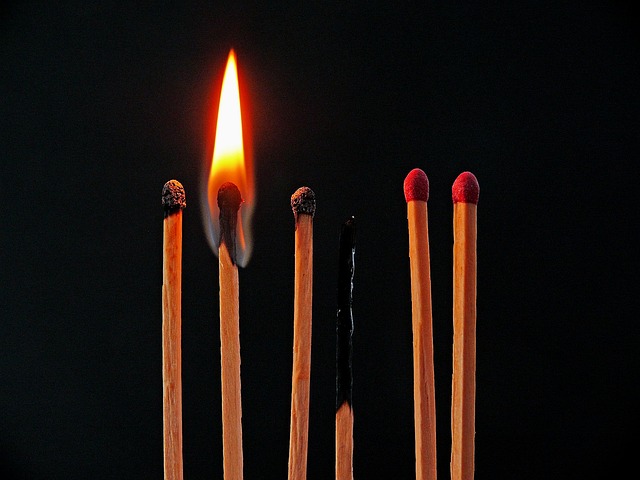This story initially appeared in Children TodayVox’s newsletter about kids, for everybody. Register here for future editions
In high school, Jayden Dial dealt with a podcastprepared school occasions, and made a movieThat was on top of doing her research and using to college. In some cases, she still felt like she wasn’t doing enough.
Jayden, now 18, would see kids her age on YouTube speaking about their jam-packed regimens– “I exercised, I practiced meditation, I read my Bible”– and she ‘d believe, “Oh my God, I require to be so, so efficient.”
This sort of performance stress and anxiety is most likely familiar to numerous grownups. I, for instance, have actually been understood to tension myself out viewing reels of moms and dads in some way cleaning their homes while kids play gladly in the background.
According to a brand-new report by the not-for-profit Common Sense Media and scientists at Harvard and Indiana University, the pressure to live a set up, enhanced, refined life has actually dripped down to teens, resulting in signs of tension and burnout more carefully related to individuals years older.
Of the 1,545 teenagers the scientists surveyed, 56 percent felt pressure to have a “tactical plan” for their future lives, while 53 percent felt pressure to “be extraordinary and remarkable through their accomplishments.”
The findings challenge the stereotype of youths today as lazy and entitled iPad kids who simply wish to see videos all the time. Scientists discovered that numerous teens have actually internalized a drive to prosper at the cost of their psychological and physical health: Some reported that they didn’t focus on self-care practices like getting adequate sleep or talking with buddies since they weren’t “efficient.”
And more than a quarter of teenagers state they’re stressed out, a sensation one compared to being “a worn-out maker in a factory […] You’re simply doing the exact same thing over and over, and you do not seem like you truly have a function.”
Such declarations are interrupting to speak with kids still in high school. The report’s authors think that their findings might assist discuss high levels of anxietystress and anxiety, and unhappiness in youths. Increasing rates of such psychological illness have actually frequently been blamed on smart devices and social networkshowever the Common Sense report paints a more complex image: Teens exist within a culture consumed with accomplishment and success, while the conventional markers of having “made it” (a home, a stable task, a cost savings account) feel more out of reach every day.
Social network might heighten these fixations, permitting kids to compare themselves to more “effective” teenagers (a dismal idea in its own right). It’s simply one part of a bigger issue, one with no simple options.
What’s required is “a shift in what is necessary,” Jayden stated. “There requires to be a larger focus on time to check out.”
Teenagers are currently worried about their future
The report’s authors began by studying the results of innovation on teen psychological health, stated lead author Emily Weinstein, executive director of Harvard’s For Digital Thrivingwhich studies the function of tech in individuals’s lives.
Teens informed them they required to broaden their lens, to look at whatever going on in young individuals’s lives. The scientists wound up asking a nationally representative sample of kids aged 13– 17 about 6 prospective sources of pressure in their lives: the concept of a “strategy,” grades and accomplishment, look, social life, relationship, and advocacy.
The kids originated from all over the nation and from a series of socioeconomic backgrounds, and the scientists likewise particularly connected to Black and LGBTQ+ teenagers to ensure their experiences were represented. Kids with greater household earnings tended to feel more pressure around accomplishment, however there were no constant distinctions by race.
Teenagers, the scientists discovered, are most likely to be stressed about their grades and their profession strategies than about having good friends or looking great. And “this looming sense that you need to have a prepare for your future, and you need to currently be pursuing it” has actually been a style in the group’s research study for a long time, Weinstein stated. She keeps in mind a previous teenager advisor to the group who fretted that she had “signed up with LinkedIn too late.” She was still in college.
Social network can feed into this pressure. “Before, you simply saw things on talk reveals about these truly incredible, gifted, talented kids. Now, you go on TikTok, you might discover 10 of them,” Dial stated.
Teenagers informed the scientists that the leading source of pressure around accomplishment and future preparation was grownups in their lives, stated Sara Konrath, one of the report’s authors and a teacher of humanitarian research studies at Indiana University Indianapolis. Moms and dads, instructors, and coaches might be “doing their finest to attempt to assist teenagers, however not truly comprehending that we’re sort of pressing the teenagers to internalize some really unhealthy mindsets and habits.”
Those habits consist of avoiding sleep, workout, or pastimes since they do not suit the bigger strategy. One 11th-grader informed the scientists she enjoys books, however often second-guesses herself due to the fact that “I simply feel ineffective in some cases when I’m checking out.” In interviews, teenagers consistently revealed regret over taking breaks, Weinstein stated, feeling that “if you’re not carrying out, if you’re not aiming, if you’re refraining from doing something efficient in some location, that in some way that is practically ethically incorrect.”
Such mindsets can cause burnout, experienced by 27 percent of teenagers in the research study– a state identified by “psychological fatigue, cynicism, and an uncertainty that your effort will make a distinction,” the report’s authors compose.
Public discussions about burnout generally concentrate on grownups– Anne Helen Petersen’s viral 2019 BuzzFeed essay “How Millennials Became The Burnout Generation” had to do with individuals in their 20s and 30s. According to the Common Sense report, a lot of teenagers feel like they’re part of the burnout generation, and they’re experiencing the very same ill impacts numerous grownups do, consisting of tiredness, absence of interest in previously enjoyable activities, and possibly a raised threat of establishing anxiety.
In addition to supplying a hint about what may be driving a few of the uncomfortable patterns in youth psychological health, the research study likewise uses a counter-narrative about why teenagers and young people today aren’t reaching particular turning points– like beginning to date or getting a motorist’s license — at the very same rate as their seniors. “They’re sort of adulting in lots of other methods,” Konrath stated. “Maybe the factor they’re not getting their license is due to the fact that they’re in school all the time and they get home and do 5 hours of research.”
How to assist burned-out teenagers
Numerous grownups want kids would put their phones down and go play outside, we are the ones who developed hustle culture and the fixation with performancein addition to the financial conditions behind them.
Today’s youths are less positive about their financial futures than previous generations, Konrath stated– they see what their moms and dads are going through and fret about whether they’re going to have the ability to pay for a home one day
They’re likewise continuously advised of just how much more unattainable the standard markers of middle-class life are ending up being, beginning with yearly headings about record varieties of trainees using to college (which might quickly cost $100,000 a year.
It’s no surprise teens seem like they need to currently be on LinkedIn. “Certain elements of youth or teenagehood have actually been removed from individuals my age,” Jayden stated.
Restoring what’s been drawn from them will not be simple. Self-care habits like workout and hanging out with buddies do assist– kids who participated in them were less most likely to be stressed out, the report’s authors discovered. “simply providing kids another to-do list” is not going to repair the issue, Weinstein stated.
Rather, kids require grown-ups to take a look at prospective origin of pressure and burnout, consisting of a culture of “continuous metrology” made it possible for by apps that enable schools to share every test rating and project grade right away with moms and dads, Weinstein stated. They likewise require to think about the world kids are maturing in, from environment modification to school shootings. “When you’re a young adult, a great deal of times it can seem like individuals in power do not have compassion,” Jayden stated.
Jayden, now a first-year trainee at Stanford, does have some guidance for teenagers her age and more youthful who seem like they need to have their lives all determined. “It’s better to experience newness and attempt brand-new things instead of attempting to find out whatever,” she stated. “You have the rest of your life to be a grownup.”
What I’m checking out
U.S.A. Today writer Marla Bautista discussed leaving her household ahead of Hurricane Milton, and the toll catastrophes like this can handle kids. “While the physical damage gets considerable attention,” she composed, “there is far more damage that you do not see, consisting of the psychological and scholastic damage creating chaos in the lives of kids.”
A UK grade school is motivating kids to play in mudProfessionals state it’s an excellent concept.
UC Berkeley scientists studied how kids respond to false information. Their research study is extremely enjoyable and includes aliens with dark glasses and lies about zebras. They likewise have suggestions for working out kids’ “hesitation muscles.”
My youngster has actually found Trumana book about a brave small turtle (with an essential visitor look by a city bus). My huge kid, as befitting the season, enjoys The Book of Mysteries, Magic, and the Unexplained
From my inbox
In lieu of reader e-mails, today I’m going to share a couple of viewpoints from trainees that I didn’t get to consist of in my current newsletter on kids and politics
“I initially got thinking about politics in 7th grade through my National History Day year-long research study jobs, an interest that reinforced when I remained in 8th grade throughout the 2020 election,” Hannah Cho, a high school senior and the nationwide chair of the High School Democrats of America (HSDA), informed me in an e-mail. “I still keep in mind viewing the inauguration unfold on T.V. throughout breakfast and aspiring to go over President Biden’s inaugural address and Amanda Gorman’s inauguration poem to name a few occasions that took place throughout the historic day with my history instructor, Mrs. Linck.”
Rishita Nossam, 16, the HSDA interactions director, informed me she began to get more thinking about politics after seeing posts about Black Lives Matter on social networks. Today, the most significant problems for her consist of weapon violence, media security, civics education, and reproductive rights: “Government needs to not have a right to interfere in the choices that females make about their own bodies.”
I ‘d enjoy to hear what you’re hearing from kids and teenagers in your life about the pressure to accomplish or prepare for the future. Are the teenagers you understand experiencing these pressures? And what’s the function of moms and dads and caretakers in assisting them browse all this? Let me understand at anna.north@vox.com.



